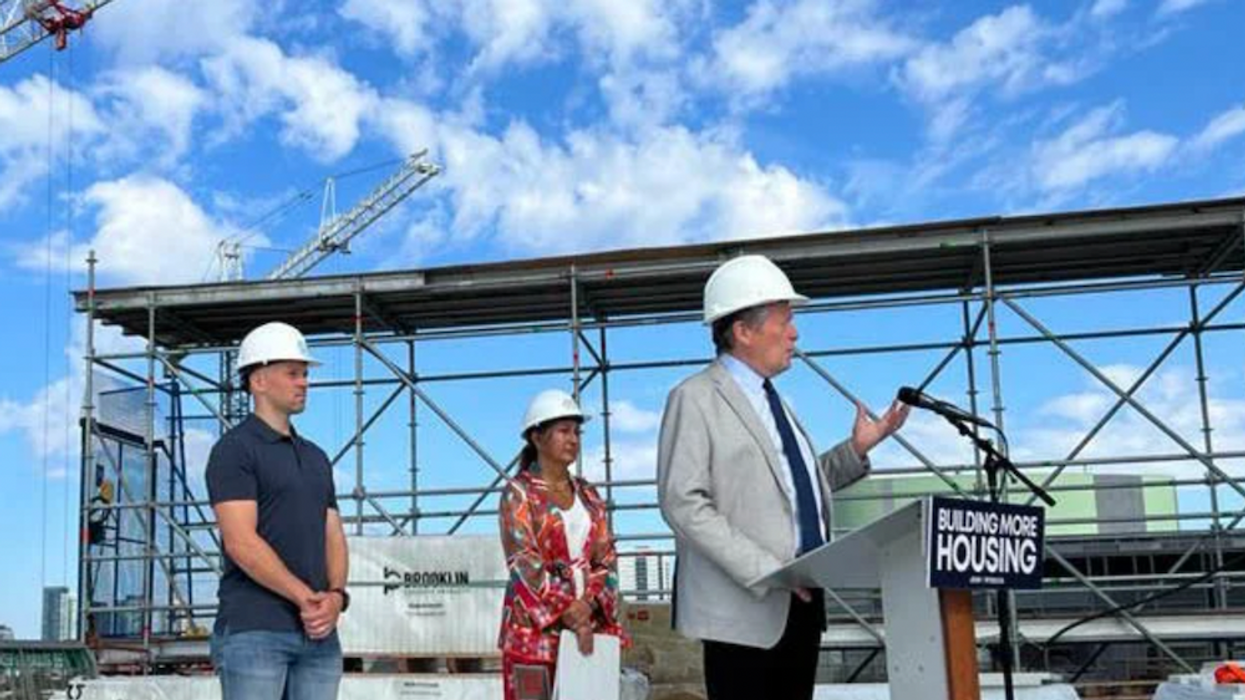Incumbent Toronto Mayor John Tory is doubling down on the need to create more housing in the city, as the municipal election looms in October.
In an election platform announcement made to reporters at the city’s Distillery District, Tory unveiled a five -pillar strategy aimed at boosting construction and improving overall affordability for residents.
“I believe we need to get more housing built, we need to get more affordable and supportive housing built and we need to have housing that is obtainable for middle-class Torontonians,” he stated.
The plan will include:
- Receiving authority from the province to put a “use it or lose it” policy into place for developers, to prevent them from delaying building on land approved for development;
- Allowing more missing middle housing -- including the newly legalized garden suites as well as laneway housing, and exempting new developments with four units or less from development charges;
- The creation of a city Development and Growth Division;
- Improved incentives for the creation of purpose-built rental housing, such as lowering fees and development charges;
- And granting a portion of city-owned land to non-profit developers, in efforts to create more co-op and supportive housing options.
In a release, the mayor added, “We’ve made strong progress over the past eight years to get housing built in Toronto, but to tackle increased affordability challenges brought on by a national housing shortage we need to build more homes, faster.”
“This is about making sure that young people can live and raise their families in the neighbourhoods they grew up in, seniors can stay in their neighbourhoods if they decide to downsize, and newcomers can continue to move to and contribute to this City.”
READ: With Election on Horizon Toronto Mayor John Tory Discusses Housing Track Record
According to Tory, under his purview, in July 2022 alone, the City approved a total of 24,829 housing units, including 2,060 affordable and 2,413 purpose-built rental units, and 775 rental replacement units.
In particular, the new Development and Growth division will streamline new housing creation, acting as a central hub that would handle all aspects of the review and approval process, in efforts to speed approval times. The mayor said the division would have a particular focus on fast-tracking the approval of purpose-built rentals.
“This will be a reorganization of existing staff in the spin cycle of housing applications, and thus bouncing back and forth between different divisions of the city government. The Development and Growth Division will allow us to be more nimble in getting projects approved,” he stated.
The mayor’s announcement has been warmly received by the province’s residential builders association RESCON, which stated particular support for the mandate to expand missing middle housing options, as well as allowing increased housing density on major roads and near transit arteries. As well, the plan to “cut red tape" at city hall will be “vital if we are to see the streamlining of all building approvals that is so desperately needed,” states RESCON in a release.
“RESCON has been fighting for changes to restrictive land use policies and the commitment to more missing middle housing begins that process. We are also pleased that the plan includes incentivizing the construction of purpose-built rental housing by reducing fees and charges as well as prioritizing the applications.”
However, the organization says its still concerned that no movement has been made on the government taxes, fees and levies that Toronto-area builders face when getting shovels in the ground, which the CMCH has reported to be the highest in North America; according to the Crown Corporation's research, should those charges be removed, the cost of a Toronto dwelling would be reduced by 10 to 24%.
RESCON also applauds the move to alleviate the systemic lack of purpose-built rental creation, which they say have been “vastly under–produced” in Toronto relative to other North American cities.
“Purpose-built rental is the first type of housing most newcomers to the city seek,” said RESCON President Richard Lyall. “The commitment to make it easier for developers financially to build purpose-built rental is a RESCON priority and the mayor’s platform will move the yardsticks towards achieving that goal. The Port Lands area alone can and should accommodate higher density housing up to 50,000 units, twice the amount noted.”





















